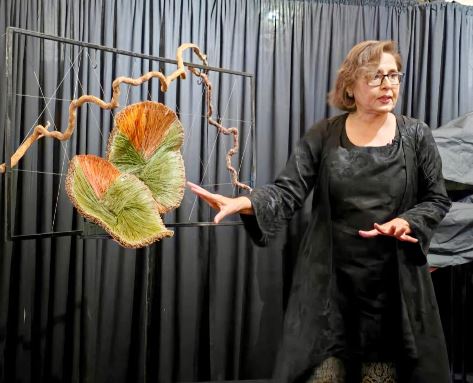The Uyghurs Muslims community is under media debate for the last few years.But we see it got new momentum in the last few weeks. On the first of September, 2022, the UN released a report on China’s Uyghur Muslims community.It is claimed in a report that Chinese authorities had subjected Uyghurs and other mostly Muslim minorities in Xinjiang to “large-scale arbitrary detention” in facilities they described as vocational education training centres (VETCs), at least during the period between 2017 and 2019. The report accused Chines authorities of torture, ill-treatment and sexual abuse at VETCs were “credible”, and said there were “serious indications” of forced labour and violations of reproductive rights in Xinjiang.
The UN fresh report is signed by more than 60 groups, campaigners said the report by the world’s leading human rights body offered a confirmation of the abuses that human rights groups have documented in Xinjiang for years now.
The Uighurs are a predominantly Muslim Turkic group who differ in religion, language and culture from China’s majority Han ethnic group.
The US-sponsored Uighur rights groups have accused China of carrying out a “genocide” against the community, by launching a campaign of mass internment, killings, forcible sterilisations, separating children from their families and destroying the group’s identity, including by demolishing mosques and other sacred sites.
China has described the UN report as a “farce”.It is a matter of fact that Beijing has enforced severe security measures in Xinjiang in recent years in what it says are efforts to combat separatism and religious extremism. However, such efforts are observed as a crime against the specific community by western media.
As per the UN report over a million Chinese Uyghur community is in detention centres but Chines authorities claimed that it is Vocational and training centres, are not detention centres and the UN report has been made under US pressure and no reality in it. There are many courses are taught for the betterment of these people which also help in deradicalisation and counter terrorism.
It is claimed by the authorities that courses at the vocational centres include standard spoken and written Chinese, as well as law and vocational skills. The training was focused on “de-radicalization” and “psychological correction and behavioural intervention to help trainees change their mindset, re-enter society and re-join their family”.The Chinese document released in rebuttal to the UN’s report states”Fundamentally, the education and training centres are schools in nature,” “They are not detention camps”, the report states, adding that claims of “trainees” going “missing” or “forced missing” were “pure fabrications”.
According to China, trainees at the VETCs enjoy personal freedoms in terms of movement and correspondence. Trainees return home regularly and can apply to leave the centres to attend to personal matters.
According to a recent UN report, State policies in Xinjiang have also placed severe restrictions on Uighur religious identity and expression, according to the UN, as well as restricting the right to privacy, freedom of movement, and violations of reproductive rights through discriminatory family planning and birth control policies. However, China claims that VETCs respect freedom of religious belief, customs, traditions, and trainees can use their minority spoken and written languages.”The centres fully respect the cultural needs of trainees,”
China stresses that the VETCs are not “concentration camps”, and “there was no such thing as violations of human rights at the centres”.Trainees are covered by pension and medical insurance, and receive free health checks, according to the report.
“In Xinjiang, the Uyghur and people of all ethnic groups fully enjoy the right to freedom of religious belief”, and “normal religious activities in accordance with law” are protected.Xinjiang’s “education and training” policies, China argues, are a “concrete example of China’s efforts to implement UN action plans as well as international initiatives and concepts on counter-terrorism and de-radicalization”.
Chinese authorities also claimed that the training for Islamic scholars “has been upgraded”, and investment in the Xinjiang Islamic School has been made.China’s report states that the installation of security cameras in rural and urban public places in Xinjiang is consistent with established international practices, and the measure is not designed to target any particular ethnic group.
Chinese Officials if anyone compares the practice in Xinjiang with the United States and the United Kingdom and describes the criticism of China for surveillance as “naked double standards”.China said it was opposed to the release of the UN report which “ignores the human rights achievements” made by all ethnic groups in Xinjiang.
It is claimed that China has pursued a “people-centred approach” in its policies and has embarked on a human rights development plan that aligns with “trends of the times and suits China’s national condition”. In the Chinese official report it is said, China “upholds that living a happy life is the primary human right”.“To sum up, respecting and protecting human rights is a basic principle enshrined in the Constitution of China” the Chinese report states.
Anti-China forces in the US and the West merely pretend to care about human rights but were using the Uighur issue as a means to “destabilize Xinjiang and suppress China”. In which they will not succeded. This is also the fact that Xinjiang Uygur autonomous region gained rapid growth in the last few years. Chines largest road network project OBOR starts from there. The dramatically significant development of the pluralistic and diverse region of China’s Xinjiang Uygur autonomous region has dismissed the propaganda peddled by Western elements, who have never visited this land.











